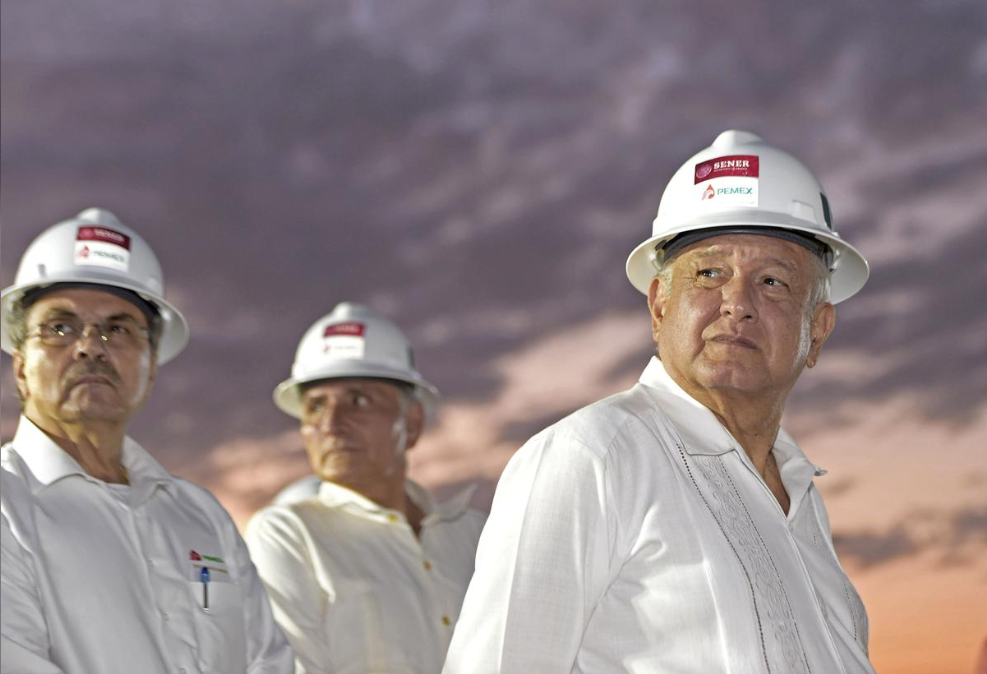(Reuters, Marianna Parraga, 22.Aug.2019) — The two new top executives at Citgo Petroleum disclosed this week that net income in the second quarter slid to less than half its level a year earlier, hit by a broad slump for the refining industry as well as complications from U.S. sanctions on Venezuela and Citgo’s split with state-run oil company PDVSA.
Chief Executive Officer Carlos Jorda and Chairwoman Luisa Palacios on Thursday laid out a plan to rebuild profits, pay down debt and invest in operations after a jarring split this year from parent Petroleos de Venezuela (PDVSA). But they conceded that their plans could be complicated by U.S. sanctions on Venezuela which have affected relationships with suppliers and partners.
One contentious issue is whether Citgo or another PDVSA subsidiary is responsible for a payment of almost $1 billion due to bondholders this fall.
Houston-based Citgo, the eighth-largest U.S. refiner, ousted its CEO and other top executives early this year and halted all dealings with PDVSA after Washington levied sanctions on Venezuela intended to force socialist President Nicolas Maduro from office.
In his first public remarks since becoming Citgo CEO last week, Jorda revealed that Citgo’s net income tumbled to $122 million in the second quarter from $255 million a year earlier. U.S. sanctions disrupted longstanding business relationships for Citgo, deprived the company of Venezuelan oil contracts and required it to pay cash for alternatives.
Jorda forecast that profits will rebound as margins are boosted by growing demand for low-sulfur fuels and as refineries run a wider variety of crude grades because they can no longer use Venezuelan supplies.
One thing Citgo will not soon be able to do is start paying dividends to parent companies controlled by Venezuela’s opposition congress. Paying down debt takes priority over dividends, Palacios noted.
Some Venezuelan politicians were expecting Citgo, as the country’s largest foreign asset, to help finance congress chief Juan Guaido’s interim government. The United States and dozens of other Western countries recognized Guaido as Venezuela’s legitimate leader even as Maduro retains control of PDVSA and the nation’s military.
Guaido in February appointed new directors to oversee Citgo and PDVSA’s other foreign subsidiaries. Last week, a Delaware court confirmed the Citgo board, rejecting a move by Maduro to regain control of its U.S. operations. Citgo last year reported net income of $851 million on revenue of nearly $30 billion.
“The board of directors has been working on the company’s operational and financial strength so it can recover its capacity to declare dividends to the shareholder,” Palacios told Reuters.
Jorda pledged the business will perform better in the second half. Despite having to transition to new oil suppliers, “the operation has been good,” he said. Citgo refineries in Louisiana and Texas, geared to run heavy crude, are now processing more U.S. domestic light grades, while its Illinois refinery continues running Canadian oil.
“The company has adapted well to not having supplies of Venezuelan crude,” Jorda said, noting managers have “moved to select the best fitting crude.”
Still, Citgo faces legal challenges from Venezuela creditors, and from U.S. investigations into the company’s role in PDVSA contracts. A payment of about $900 million payment due to PDVSA bondholders in October is secured by Citgo shares.
“That’s not Citgo’s debt, but PDVSA’s,” said Palacios, who said the company is not planning to be directly involved in the payment. She said Guaido’s team is pursuing negotiations with bondholders. “We trust they will succeed,” she said.
U.S. sanctions that bar imports of Venezuelan oil also weigh on the business. Citgo, which processes about 750,000 barrels of oil per day, turned to open-market purchases of mostly U.S. and Latin American crudes for its Gulf refineries and heavy Canadian oil for its Illinois plant.
Second-quarter results were hurt by a lengthy maintenance project at its Corpus Christi refinery, and smaller discounts for some heavy crudes, Jorda said. He forecast discounts for heavy oil would widen to about $7.65 per barrel, aiding second half margins.
Jorda said that no refinery expansions are planned. Operational and financial stability, best corporate practices and protecting Venezuela’s foreign assets from creditors are the company’s top goals.
(Reporting by Marianna Parraga; editing by Gary McWilliams and)
***
